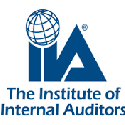Robotic Process Automation (RPA) – How it will affect the Auditing profession

Technologies and Robotic Process Automation (RPA) is going to change the way work is done in offices and the predictions are that millions of jobs will disappear. There is even an article that states “once account-keeping itself becomes fully automated and reconciliation functions become superfluous, both those who keep the books and those who audit them will be out of work. Machines will input the financial data, analyze the financial data, and audit the financial data—all within a few minutes, if not seconds.” This article address this issue and how we need to change and update our knowledge so that technology is used for benefit of employees and companies not just only corporation that want to increase their profits and cut costs at the expense of the workforce.
First we need to understand what Robotic Process Automation (RPA). The easiest way to explain RPA is that it stands for digital labor and it relates to work that is repetitive, can be automated and involves activities such as copying and pasting data between applications, reconciling and cross-referencing data between different systems, etc. It does not end there. RPA can also be programmed to make high-level decision at certain key points in the business process.
RPA systems also have direct interactions with customers and employees. In the USA my pharmacy’s RPA calls to inform me when my prescription needs a refill and if I require it to press ‘Y”. The RPA also informs me when I ran out of refills and offer to call my doctor for the renewal of the refills. Once my refill is ready for collection the RPA sends me a message giving time and location of delivery. If I do not receive the initial call the RPA will call again and again at different times. If I still do not receive the call it will send me a text message.
Thus, common tasks previously done by humans are now done by RPA much more efficiently. In the USA these systems are currently processing customer insurance claims or setting up new employees with the right level of IT access.
RPA gives companies many advantages such as improving the quality, flexibility, speed and agility of the task. This results in an increase in the economic value of the company.
While it might appear that the workforce will not be happy, just like the weavers who broke the looms that took away their jobs I hope this time story might be different. This can only happened if all of us develop the right attitude that that technology is all about helping people, and not only about making more money.
As organizations use RPA projects and get comfortable with digital labor, it will become a stepping stone for companies to use machine learning or other forms of artificial intelligence for more creative initiative that could results in more jobs. Amazon had added 30,000 robots since 2014 and yet at the same time the number of jobs has increased. In 2017 alone nearly quarter new million employees were added to its headcount, the largest in a single year. Yes, the warehouse jobs went down but call center jobs increased.
Consultants and firms are springing up that review the company’s processes and help them automate everyday tasks and thus make their businesses more productive. If you go to Oracle’s home page you will see a robot shaking hands with a human with a promise from Oracle to help your company to automate all mundane tasks and free up critical resources.
The Management, Finance and Audit all play a very important role in connection with RPA. It must be remembered that while tasks are automated and taken over by RPA the risk and responsibility will always remain with Management and Finance. Thus, the initial risk of the process remains the same except now the risk mitigation measure must be built into the RPA system.
As auditors we must be able to understand that certain risk will go down like compliance risk but also that there might be other new risk in the processes that are automated and hence ensure that the Management and Finance departments understand these risks. While as a robot will perform the task with great accuracy but if an error occurs it will consistently repeat the same error which would result in a widespread issue. This might happen when a business process changes, but the robot is not modified. The other potential risk is if someone gains unauthorized access to a robot and altered authorization processing.
Auditors need to review the control environment and the risk mitigating measure built into the control environment. This will result in new auditing techniques to test the new automated processes. This is also a great opportunity for the audit team who can also use RPA for testing of controls and identify activities that that will being more value to the company if automated. Hence it important that Audit team is involved from the beginning to review the controls and risk mitigation measured at the implementation stage.
Hence the auditors must constantly be reviewing the risk assessment of the company and identifying new areas of audit at the same time new auditing techniques and skills need to be acquired to keep current with their jobs. This is also true for other staff as well. If companies are not ensuring that their staff are aware of the new techniques this needs to be pointed out to the management. A classic example is how the old system of advertisement will be replaced by Facebook, twitter and other social media sites by the company. This means that audit now needs to review and audit these areas to ensure that there is no potential risk.
Job Loss due to Automation and our role
Tim O’Reilly the author of “What Is the Future and Why It Is up To Us” has a very positive attitude. He says that “Technology is the solution to human problems, and we won’t run out of work till we run out of problems”. It depends on how it is used. Take the example of Uber and Airbnb, who have used technology to provide jobs and incomes of to thousands of drivers and house owners.
20 year ago Linus Torvalds developed an open source software “just for fun.” It was free, and he allowed programmers from every continent to further enhance it. This is the world’s most collaborate effort and this free software is used in every continent including Antarctica and outer space (via NASA). This software powers 98% of the world’s super computers, and millions of Android mobile phones and consumer devices. It has help huge companies to spring up who in return employ millions of employees. Yes, I am talking about Linux. Two of the largest companies that are built on it are Google and Amazon. We all use Linux in our everyday life and get cost effective products thanks to Linus Torvalds. Yet very few of us have heard his name.
Torvalds believes that information does not want to be free but wants to be valuable. By giving his software free and allowing other programmers to work on it, he made his software better and created opportunities for millions.
We as auditors must make recommendation that will not only increase the productivity of the company will also create opportunities for the workers and society. The most powerful companies are companies that give their services for free. We have the examples of Google and Facebook in front of us. Google economist once said “the best investment we can make is to invest in other people children!!!”.
I am a very positive thinker and it is up to us if we lose jobs or transform jobs. In this connection I would like to look at the changes that have taken in the last 50 years and how with the development of technology lots of jobs disappeared were replaced with new ones is very encouraging. Let’s take a quick review how jobs in firm and companies changed over time and how old jobs were replaced with new ones and the number of jobs increased.
In 1979 when I joined AFF to do articles I spent the first six months drafting and proof reading, it was a most boring job and only the light at the end of the tunnel kept me going. AFF had huge typing pools and dispatch centers. Staff with fast speed on the typewriter were in great demand. With the introduction of the desktop computers, word processer and spreadsheet, our learning skills changed we learned word processing and using spread sheets and soon the typing pools disappeared. This however increased our efficiency and productivity.
I jointed Citibank Dubai and was given the task of automating the central liability. With each automation, we became more efficient and could deliver better services to our customers.
We as auditors need to ensure our technology knowledge is in line with the market, identify areas of new risk and ensure we audit them.
At UCO we can help our clients by:
- Identify process that are repetitive and mundane that could be done by robots
- Identify process that can to be simplified so that it is easy to automate them
- We can connect with departmental head and functional leaders to identify area that they should think about automation
- We can identify trainings and programs for the workforce so that they can take over more crucial functions once their mundane jobs are taken over by RPA




